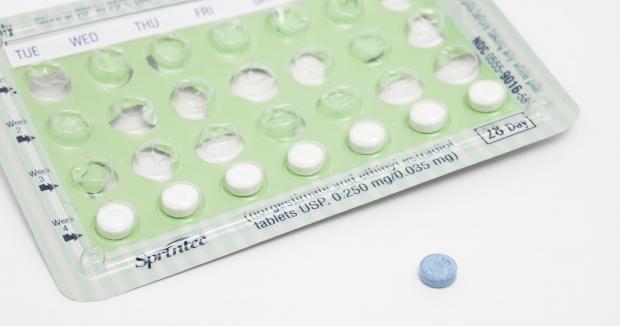What’s the Difference Between the Pill and the Morning After Pill?

If you get them mixed up, you're not alone.
Even though the birth control pill and the morning after pill are both often referred to as “the pill” in conversations about contraception, these medications are actually very different and serve different purposes. Nonetheless, some people get them mixed up or even mistakenly assume that they’re the same thing.
Not to worry—we’re here to help. Read on to learn what each pill does and how it’s used. But don’t forget, if you have additional questions about birth control, make an appointment at your nearest The Right Time health center.
Are birth control pills and the morning after pill just different names for the same thing?
Nope! It’s definitely confusing that they’re often both called “the pill,” but each one does something unique.
First, the birth control pill is sometimes called “oral contraception.” It is taken at the same time every day. It works by releasing hormones that prevent ovaries from releasing eggs and by thickening cervical mucus to help block sperm from getting to an egg. These two things are key because pregnancy occurs when sperm meets an egg.
The morning after pill is sometimes called “emergency contraception.” It is taken when another method of birth control fails (like if you use a condom that turns out to have a hole in it), or if birth control isn’t used during a sexual encounter. The sooner you use it, the more you reduce the possibility of pregnancy.
Does the birth control pill or emergency contraception cause an abortion?
No, neither of these pills cause abortions.
What if I didn’t realize I was pregnant and I took either of these pills?
Birth control pills and morning-after pills do not affect pregnancies.
Will these pills affect my fertility in the long-term? Can I still have a baby in the future?
You will return to fertility (which just means that you go back to being able to get pregnant) just a few days after stopping the birth control pill (which is the one you take every day at the same time). So, if you don’t want to get pregnant right away, make sure you start using an alternate method as soon as you stop taking the pill.
Similarly, there is zero evidence that taking morning after pill (aka the EC pill) will make it harder for you to get pregnant if you choose to do so in the future.
Where can I get these pills?
To get free or low-cost access to either pill, make an appointment to talk to a provider at your nearest The Right Time health center. You can also schedule a telehealth appointment (one that takes place over the phone or on a computer).
Related Content


Article
What Does “Dual Protection” Birth Control Mean?It usually means using a condom along with another birth control method.

Article
January is Cervical Cancer Awareness Month: What to Know About HPV and ScreeningA positive HPV test can feel scary, but healthcare providers at your nearest The Right Time clinic can help.

Article
Own Your Well-Being in 2026 with These 3 Sexual Health ResolutionsFirst: prioritize preventative sexual and reproductive health care.



















